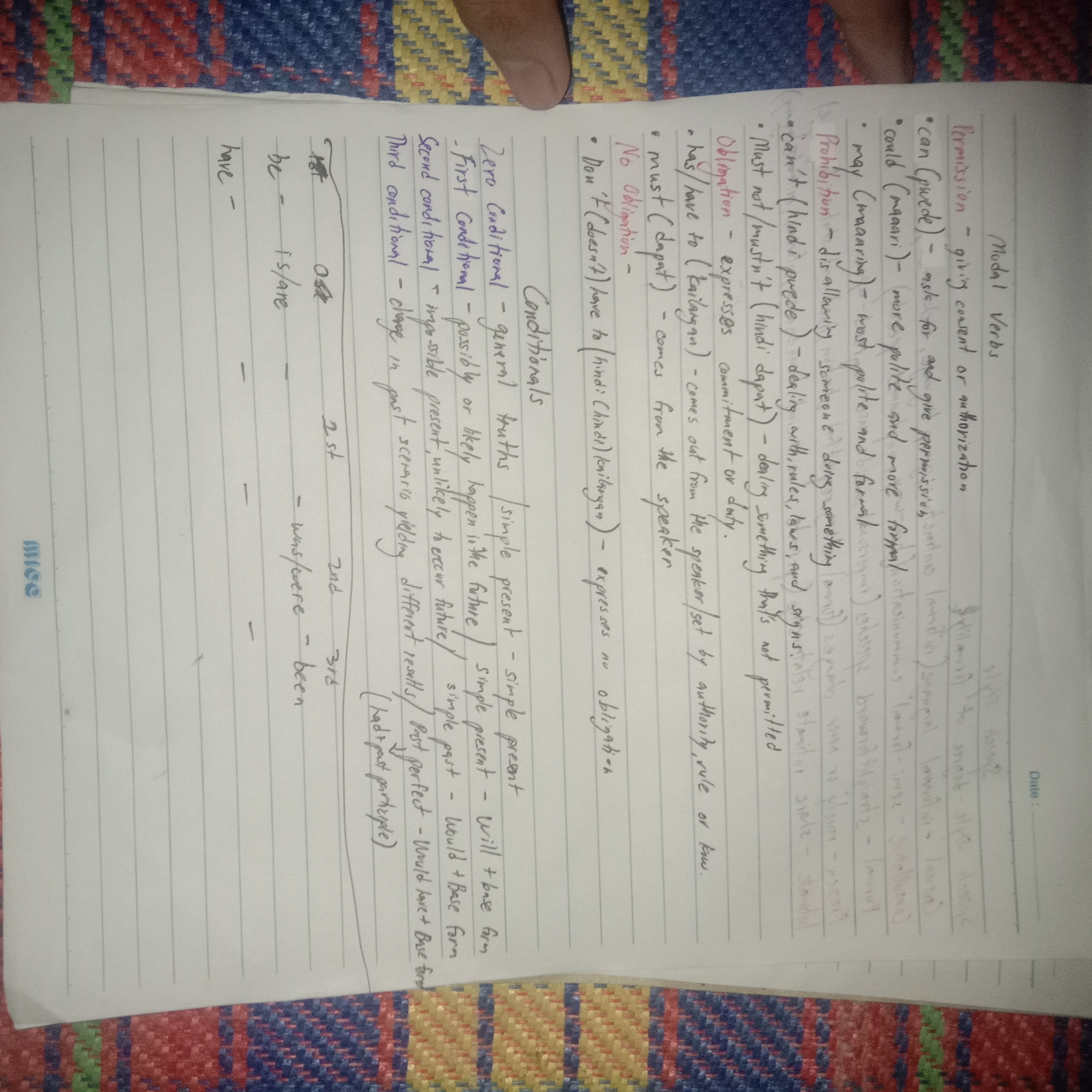What are the definitions and uses of modal verbs and conditionals in English grammar?

Understand the Problem
The question appears to be focused on modal verbs and conditionals in English grammar, providing definitions and examples of usage.
Answer
Modal verbs express necessity, possibility, permission, or ability. Conditionals express conditions and outcomes, categorized into zero, first, second, and third conditionals.
Modal verbs are auxiliary verbs that express necessity, possibility, permission, or ability. Common modal verbs include can, could, may, might, must, shall, should, will, and would. Conditionals are sentences expressing conditions and their possible outcomes, typically categorized into zero, first, second, and third conditionals based on the likelihood and time frame of their occurrence.
Answer for screen readers
Modal verbs are auxiliary verbs that express necessity, possibility, permission, or ability. Common modal verbs include can, could, may, might, must, shall, should, will, and would. Conditionals are sentences expressing conditions and their possible outcomes, typically categorized into zero, first, second, and third conditionals based on the likelihood and time frame of their occurrence.
More Information
Modal verbs are used to provide additional context to the main verb, enhancing its meaning by expressing different nuances like necessity or possibility. Conditionals help us discuss hypothetical scenarios, their potential outcomes, and their implications on time.
Tips
A common mistake with modal verbs is confusing 'can' (ability) with 'may' (permission). With conditionals, ensure verb tenses match the type (e.g., first conditional uses 'will' with base verb).
Sources
- Modal Verbs: Definition & Usage Examples | Grammarly Blog - grammarly.com
- What Is a Modal Verb? | Definition & Examples - Scribbr - scribbr.com
- Conditional sentences in English: What are they and how to use them? - mangolanguages.com
AI-generated content may contain errors. Please verify critical information